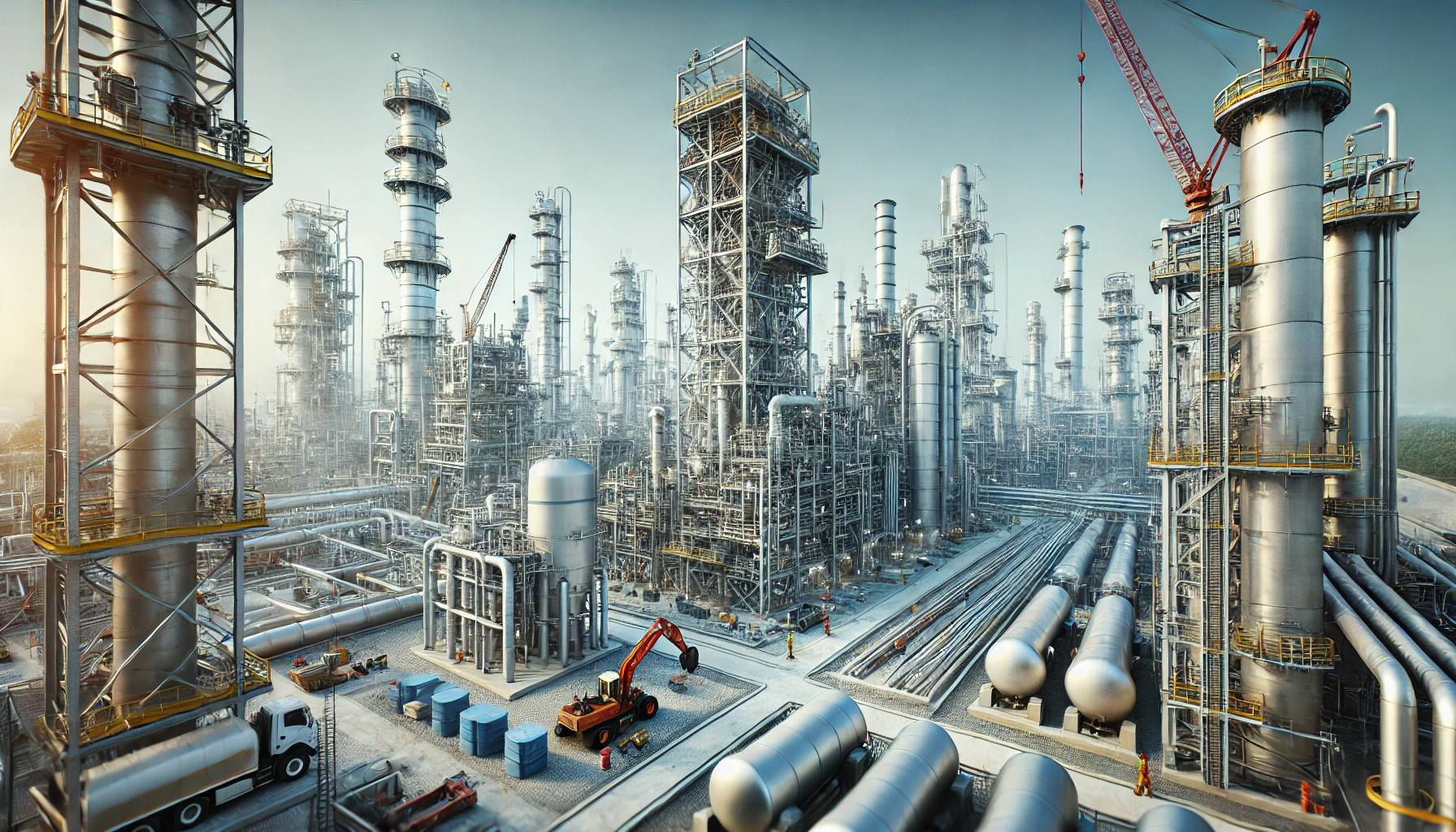
In a pivotal development for the U.S. energy sector, refinery capacity experienced a notable uptick in 2023, marking the second consecutive year of growth. According to the latest report from the U.S. Energy Information Administration (EIA), U.S. refinery capacity increased by 2%, equivalent to 324,000 barrels per day (b/d), compared to the previous year. This expansion underscores the resilience and adaptability of the nation’s refining infrastructure in response to evolving market demands and operational efficiencies.
Key Growth Drivers
The rise in U.S. refinery capacity in 2023 can be primarily attributed to significant expansion projects across key facilities. Notably, Exxon Mobil’s Beaumont refinery in Texas completed a substantial 240,000 b/d expansion project. This enhancement propelled the refinery’s capacity to 609,000 b/d, contributing significantly to the overall national capacity increase. Such strategic investments are crucial for meeting domestic and international demand for refined petroleum products, ensuring operational robustness, and maintaining competitive edge in global markets.
Current Capacity and Historical Context
As of the beginning of 2024, total U.S. refinery capacity stands at 18.4 million b/d, slightly below the peak recorded on January 1, 2020, which was 19.0 million b/d. This figure highlights the dynamic nature of the refining industry, where periodic fluctuations in capacity reflect adjustments to market conditions, regulatory environments, and technological advancements. Despite the slight decrease from previous highs, the current capacity remains robust, capable of supporting the nation’s energy needs while adapting to future growth opportunities.
“Modern oil refinery under construction with new towers and pipelines, featuring workers and equipment.”
Implications for Energy Security and Economic Stability
The expansion of U.S. refinery capacity holds significant implications for both energy security and economic stability. A robust refining sector not only ensures a steady supply of refined petroleum products such as gasoline, diesel, and jet fuel for domestic consumption but also strengthens the nation’s resilience against global supply disruptions. By reducing reliance on imported fuels and enhancing local refining capabilities, the United States enhances its energy independence and mitigates risks associated with international market volatilities.
Technological Advancements and Operational Efficiency
Technological innovations play a pivotal role in optimizing refinery operations and enhancing efficiency. Modernization efforts, including digitalization, advanced process control systems, and integration of renewable energy sources, contribute to reducing carbon footprints and improving overall operational performance. These advancements not only bolster the competitiveness of U.S. refineries on a global scale but also align with sustainability goals, promoting cleaner and more efficient energy practices.
Challenges and Opportunities Ahead
Despite the positive momentum in refinery capacity growth, the sector faces several challenges and opportunities moving forward. Regulatory compliance, environmental stewardship, and community engagement are critical considerations amidst heightened public scrutiny and evolving regulatory frameworks. Additionally, emerging trends such as the transition to cleaner energy sources and the impact of geopolitical dynamics on global energy markets present both challenges and opportunities for U.S. refineries to innovate and diversify their product portfolios.
Global Market Dynamics and Competitive Landscape
The global refining industry operates within a highly competitive and interconnected marketplace. U.S. refineries compete not only domestically but also internationally, navigating complex trade dynamics, price fluctuations, and geopolitical tensions. Strategic investments in infrastructure, technology, and workforce development are essential for maintaining competitiveness and capturing emerging market opportunities, particularly in regions experiencing rapid industrialization and urbanization.
A Forward-Looking Perspective
The expansion of U.S. refinery capacity in 2023 marks a pivotal milestone in the evolution of the nation’s energy landscape. As refineries continue to adapt to changing market conditions and embrace technological innovations, they reinforce their role as critical components of the energy supply chain. Looking ahead, sustained investment in infrastructure, regulatory alignment, and sustainable practices will be key to unlocking future growth potential and ensuring the resilience of the U.S. refining industry in an increasingly dynamic global economy.
By leveraging its refining capabilities and embracing innovation, the United States is poised to enhance energy security, drive economic growth, and lead in shaping the future of global energy markets. As stakeholders across the industry collaborate to address challenges and capitalize on opportunities, the journey towards a sustainable and prosperous energy future continues to unfold.











